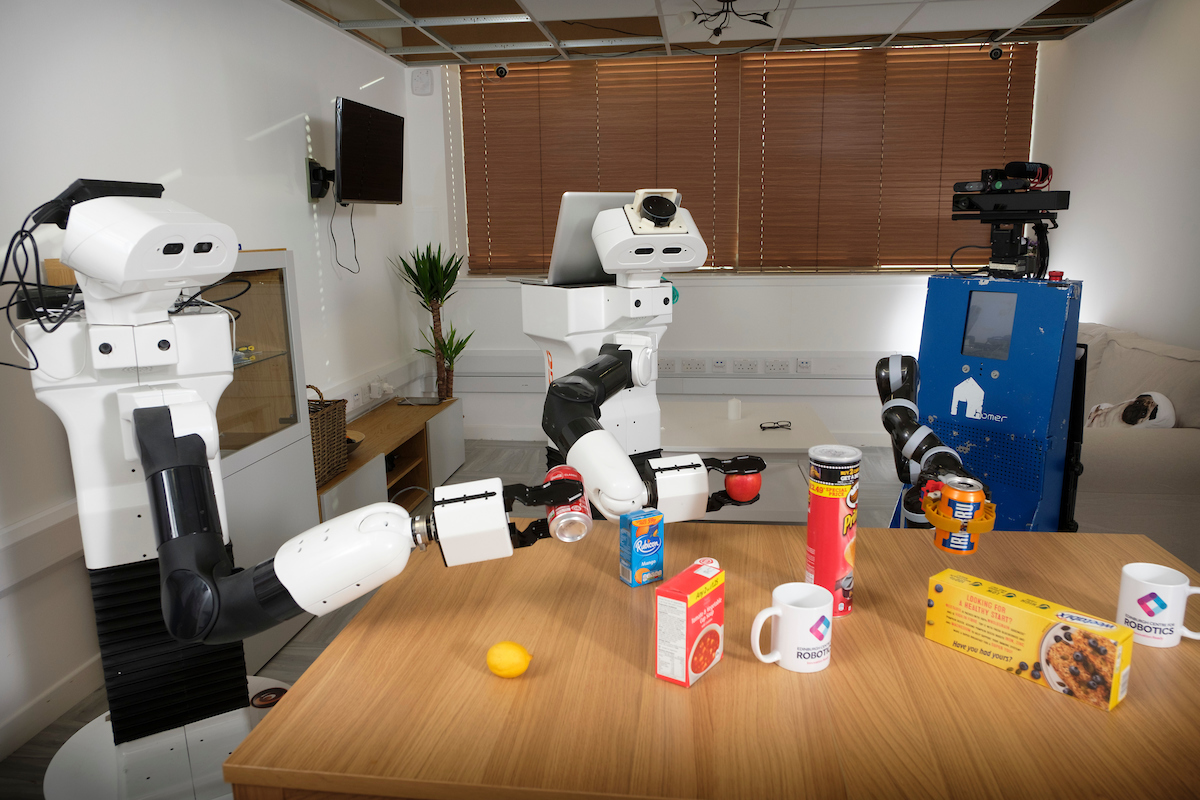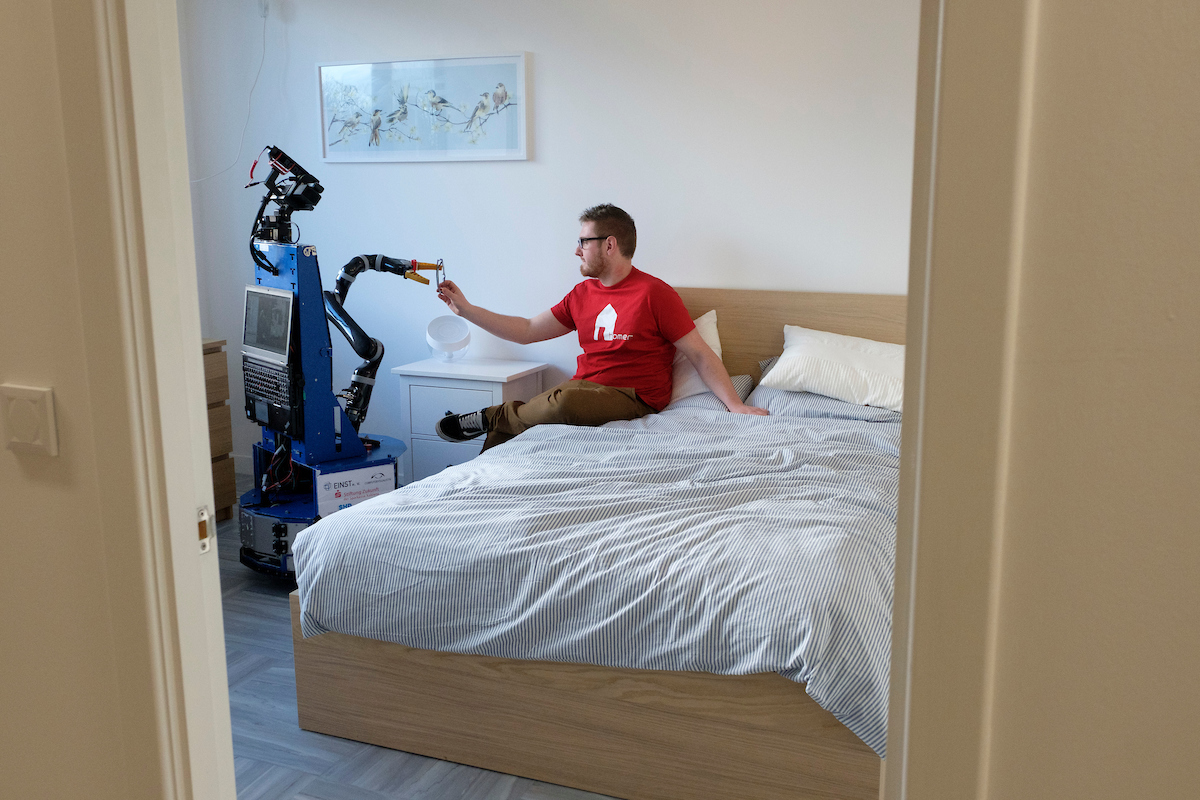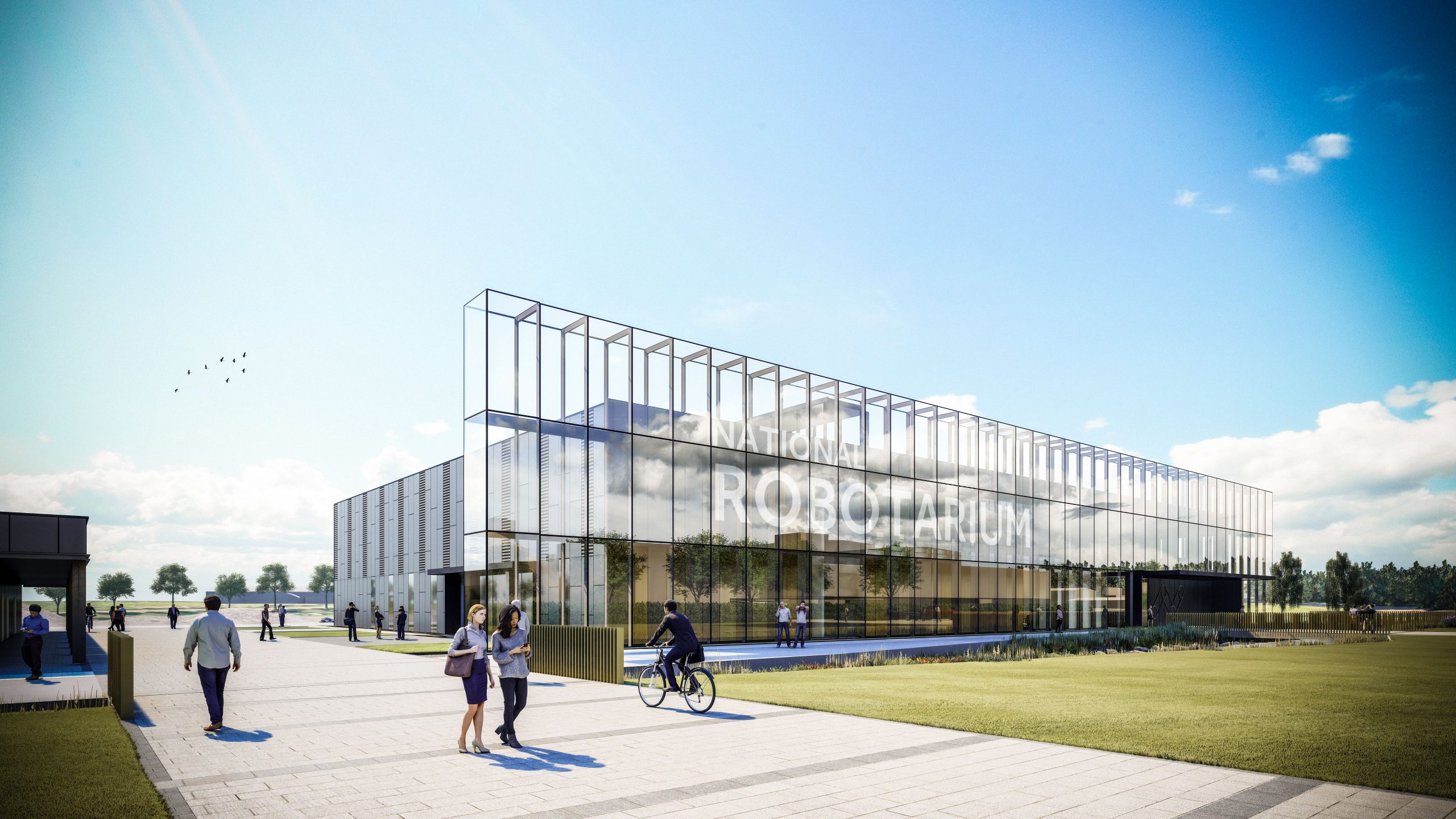A week-long collaborative robotics and social care event has brought together innovators, the event was supported by the world’s first example of an open assisted living laboratory.
The event was organised by The National Robotium, based at Heriot-Watt University, in partnership with Product Forge, the Usher Institute and Design Informatics at the University of Edinburgh, and Scottish Health Innovations Ltd (SHIL).
Highlights included connecting multiple home appliances with a single in-ear switch, and new concepts for using technology to help support social isolation and existing care packages.

Attended by health and care professionals, academics, and assistive technology providers, it aimed to prototype new solutions and accelerate technical designs to tackle multiple care and assisted living challenges.
Dr Dragone explained: “The National Robotarium’s mission is to translate cutting-edge research into technologies to create disruptive innovation in an expanding global market, delivering sustainable economic benefit to Edinburgh, the UK and beyond.
“Our Robotics and Care Mashup exemplifies the concept of a user-centred living lab, integrating concurrent research and innovation processes within a public-private-people partnership.
“We involved a range of stakeholders in the event to define research priorities and questions for health and social care technology and to accelerate innovation in the sector.
“Our assisted living lab is set up to operate like a real flat with a kitchen, living room, bathroom and bedroom.
“Throughout the home, we have connected sensors, domestic robots and other assisted living technology to help care practitioners, designers and end users to test the usefulness of assisted living technologies.”

A line up of fourteen international speakers inspired participants throughout the week with talks providing multiple perspectives on key aspects for assistive technology, from social science and cybersecurity to IoT and ethics for healthcare and social robotics.
Participants were also mentored by representatives from the Discovery Stage sponsor Scottish Health Innovations Ltd (SHIL), and the Scottish Social Service Council (SSSC), Scotland’s Innovation Centre for sensing, imaging and Internet of Things (IoT) technologies (CENSIS), the Institute of Design Informatics at University of Edinburgh, and the Digital Health & Care Innovation Centre.
Successes from the week’s event included demonstrating how the ‘Earswitch’ can be used to operate multiple devices using an ear muscle alone.
This could significantly improve the independence of thousands of individuals with a range of assisted living needs.

Dr Gompertz previously proved voluntary movements of the eardrum could be filmed and then used to trigger a virtual keyboard for MND and complex stroke sufferers.
Dr Gompertz, the inventor of the Earswitch, said: “The Mashup has helped to accelerate and widen the applications of the Earswitch prototype.
“During the event, we’ve used the Earswitch to control disability software which then can connect to devices throughout the National Robotarium’s assisted living lab and beyond.
“This allows a user to control multiple appliances in a home setting with their ear muscle alone.”
